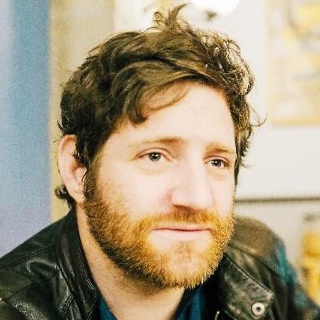
OpEds

Visiting Israel? Make sure you see the “Big 5”
With the winter break well and truly behind us, many community members are reminiscing about their first post-COVID-19 opportunity to get back to the game reserve. The highlight of any trip to the bush is a sighting of one of the “Big 5” – lion, leopard, elephant, rhino, or buffalo – which then immediately goes up on the “gram”, or is the topic at the evening’s braai.
What many don’t know, however, is that if you’re going to Israel, it’s just as exciting to take the opportunity to see the “Israeli Big 5”. I’m talking here, of course, about the five sectors of the Israeli economy that are transforming the lives of people in Africa – agriculture, water, healthcare, innovation, and entrepreneurship.
Just like the “Big 5” is core to the tourism industry on the African continent, so too is the “Israeli Big 5” core to the future relationship between Africa and Israel. The reason for this is demographics. Africa, unlike many parts of the world, has a young population and abundant natural resources. Countries that are able to harness such elements for the good of their population will reap important economic rewards and the development of their nations. Those that don’t will create an enemy of a new generation of young African people impatient for change, who are technologically savvy, hungry for opportunity, and dissatisfied with the revolutionary rhetoric of their post-colonial leaders. The possible result is another “Arab Spring” in which citizens attempt to overthrow the ruling elite.
One way for progressive African leaders to jumpstart this process is to invest in technology and capacity building in crucial areas. This will aid in the rollout of solutions at scale, and create access to opportunities at speed. The “Israeli Big 5” addresses these core issues, and can take Africa’s developing economies forward in leaps and bounds. And, of course, where the economy goes, politics will follow. Successful implementation and partnership of “Israeli Big 5” technology will drive a closer relationship between all levels of Israel and African society. We’re already seeing this dynamic playing out at the African Union, where African leaders have seen the benefit of working with Israel and have allowed for its re-accreditation to the continental body in spite of the howls of protest from loud voices such as South Africa and Algeria.
This isn’t to say that being part of the “Israeli Big 5” is easy. Like their African “Big 5” counterparts, Israeli companies thinking of entering this space are going to have to be adaptable, fast, hungry, and not afraid to take on a mammoth challenge. So, what are some examples of technologies and companies that are living up to the “Israeli Big 5” opportunity and making an impact?
Take, for example, Zzapp, an Israeli technology company that’s using advances made in artificial intelligence (AI) and applying them to the fight against malaria. Malaria kills 400 000 people a year worldwide, and is one of the top three killer diseases on the African continent along with HIV and TB. By using AI to make the campaign against malaria more efficient, Zzapp believes that it can help eradicate the disease in a cost-effective manner. The idea is so interesting, Zzapp was recently awarded the IBM Watson AI XPRIZE, a global initiative tapping AI to tackle some of humanity’s most pressing challenges. As a test case, Zzapp is working to eradicate 100% of malaria from the west coast island nation of São Tomé and Príncipe in two short years.
South Africa is a natural home for the “Israeli Big 5”. We have a strong, organised, and passionately Zionist Jewish community. South Africa also has low levels of antisemitism, a good infrastructure, and a can-do spirit across its population. We’ve already started to see the effects of Israeli innovation in our country in areas as diverse as HIV, humanitarian aid, disability access, and youth development. Just a few weeks ago, major South African municipalities met a delegation of Israeli water experts, organised by the Jewish National Fund of South Africa (JNF-SA) to look at the challenge of water recycling for the benefit of all South Africans.
This represents a unique opportunity for investment in our country. It has the potential to improve the lives of ordinary South Africans, create jobs, and solve key development challenges. It can also help bring a sense of innovation, as well as connect us to the global Jewish community in the spirit of tikkun olam. So next time you’re in the Holy Land, take binoculars and be on the lookout for the “Israeli Big 5”!
- Benji Shulman is director of public policy at the South African Zionist Federation.










